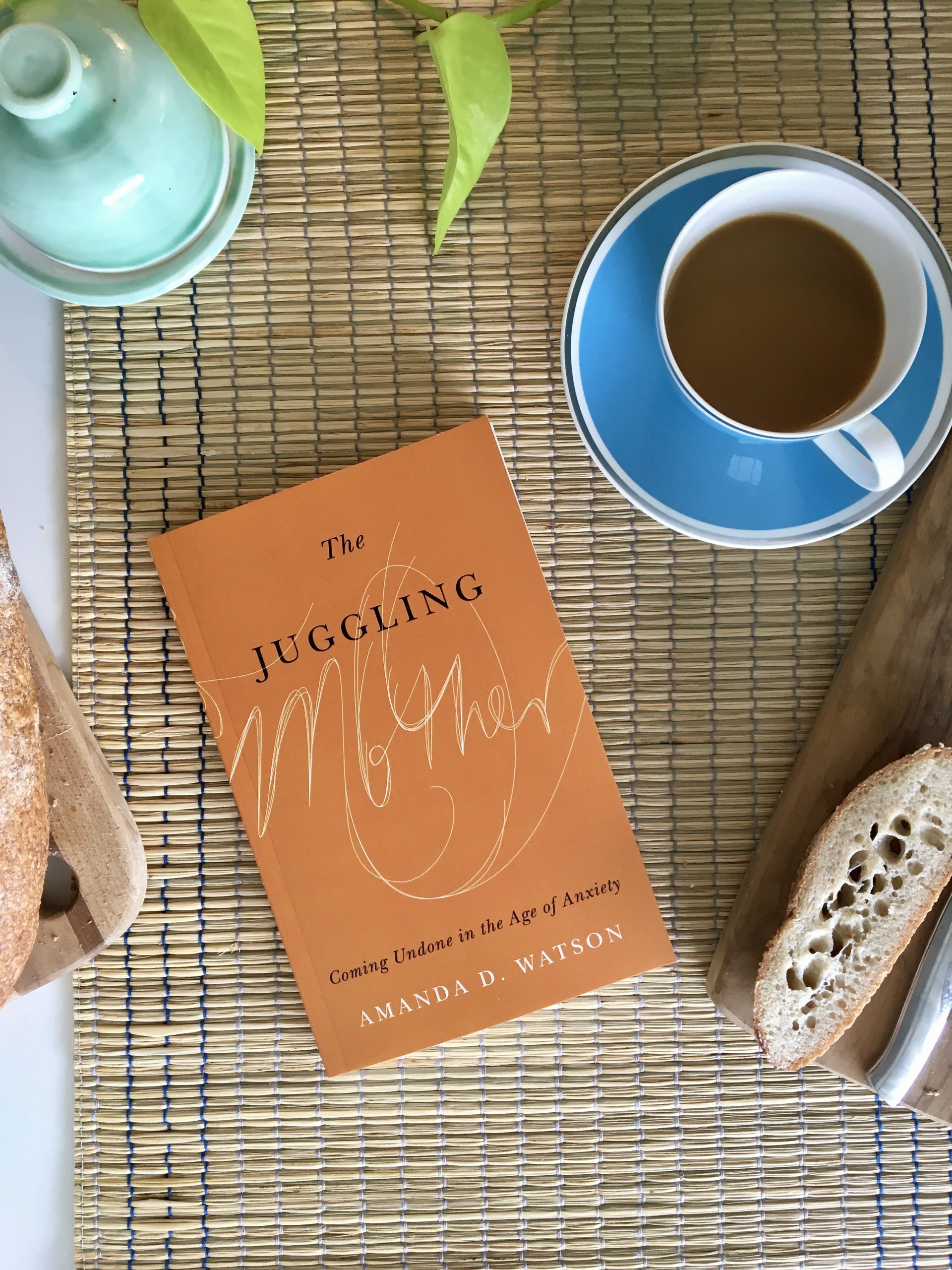We were given an advance copy of Amanda Watson’s debut book The Juggling Mother: Coming Undone in the Age of Anxiety and, like most working moms, put our kids to bed, tidied the kitchen, made a cup of tea and sat at the laptop, exhausted but ready to read. The excerpts we read that night hit us in the guts and made tears stream down our faces. It was as if Watson was writing our story, a story about fighting against stereotypes while simultaneously scrambling to embody them. The Juggling Mother presents a critical look at media portrayal of motherhood interwoven with the author’s personal parenting experience throughout her research. Though the book was written pre-COVID, the pandemic seems to have, unfortunately, exacerbated her findings. —Jenn Wint

Who is Amanda Watson and who is The Juggling Mother?
I am Amanda Watson! I’m a Vancouver author, lecturer, and mom of two. The Juggling Mother is exactly who you picture. She’s running on empty, with kids in tow, from meetings to soccer games to doctor’s appointments. But the juggling mother in my book reveals disturbing truths about how we divide labour and power in our society. She is not just a busy mom. She’s devoted to particular kinds of success that are harmful to parents on the margins of society.
What inspired you to write this book and share your research?
I had been researching how working moms are represented in media for years when I became pregnant and entered the job market. That’s when the subject matter hit me on another level. I had to admit that as I wrote critically about how motherhood and work are represented across media, from branded advertising to public health campaigns, I felt myself secretly wanting to be her: the poised, fit, affluent, working mom who juggles to perfection. That tension is where this book begins.
How does Hollywood and mainstream media do a disservice to the Juggling Mother?
I think we love to laugh along with the trials and tribulations of the juggling mother. I’m picturing Mila Kunis in Bad Moms. Who doesn’t want to be her in that revenge fantasy? The problem is that even this Hollywood example of the bad mom is far from realistic. Nothing bad ever happens to her kids, even as she falls apart, and we see bits of ourselves in her. In reality, parents are struggling to survive. Laughing feels really good, but as I bring up in the book, does this sense of validation we get from the frazzled Hollywood mom get in the way of us really resisting these pressures in our lives?
You write that your idea of what it means to come undone evolved through the writing process. Can you explain?
Absolutely. It became clear as I put pen to paper that coming undone is a bundle of feelings, including bits of anxiety, depression, stress, fatigue, and general overwhelm. But it’s sometimes a performance. It is sometimes a card we play. Like when I’m flying into a meeting and I mention my child was throwing up all night (but I’m still here and prepared and looking great!), I feel like superwoman. I wonder if letting our guards down a little more would make space for real progress for more working parents.
You write, The Juggling Mother is not about work-life balance. Can you explain?
I’m tired of books about how to navigate work and family commitments. Decades of research has shown that this is a problem that mostly impacts women. In so many ways! But we’re spinning our wheels having this conversation. I wondered why we’re still talking about this and why women in professions, with plenty of access to power, are still picking up the slack at home and at work. I think it’s because we are living in precarious times and we need to keep striving for our families out of a sense of fear and anxiety. I think we can be doing a lot more to show the cracks in the system and demand change of our employers, partners, and government. If women with the most access to power keep picking up the slack, they punish and stigmatize other parents who can’t keep up with this juggling mother performance for any number of reasons.
What was your experience writing The Juggling Mother while juggling your career and your own growing family?
I found it hard to summon creative and thoughtful brain juices in the little segments of time I carved out for myself around my teaching job and having babies. For a couple of months, I said no to as much as I could and got in a lot of fights with my partner. It was hard on our relationship and my mental health. I sent the first draft of the manuscript to my friend for formatting the morning I went into labour with my second child. It was madness. I felt empowered and proud and also incredibly stupid. The irony of what I was doing really underscores why I needed to write the book in the first place.
What effect has COVID had on the Juggling Mother?
The Juggling Mother is DONE. More women than men in Canada lost their jobs due to COVID. The anxious times I imagined when writing the book pertained to economic and environmental uncertainty. That is, living in late capitalism and climate change. Now we’re all terribly anxious and we can’t get our needs met. We can’t magically meet the social needs of our kids. We’re cracking our teeth from clenching. Moms are disproportionately responsible for homeschooling and we’re learning that some moms are leaving the workforce because they need to be at home. I think the Juggling Mother in COVID might actually be so broken down that she might call for serious system change. The cracks are so visible to everyone now! They’ve been visible to many people for a long time.
Where can we get the book?
Right now The Juggling Mother is available through the UBC Press and on Amazon. Your local bookstore can also order you a copy. You can also follow me on Instagram @spindrwatson to get all the updates.

Be the first to comment